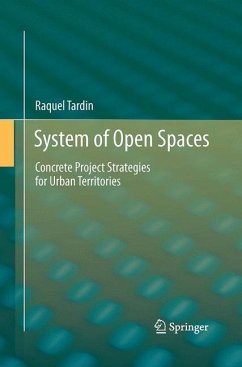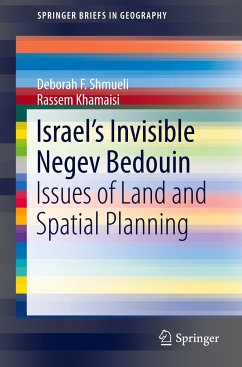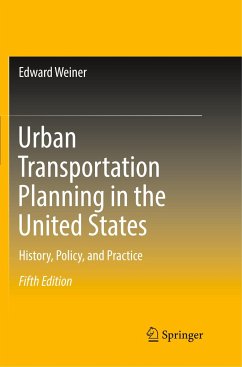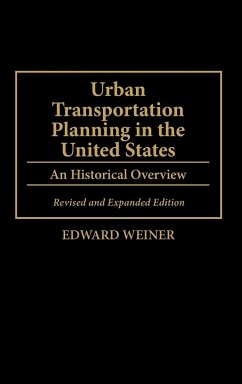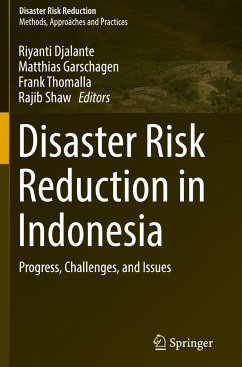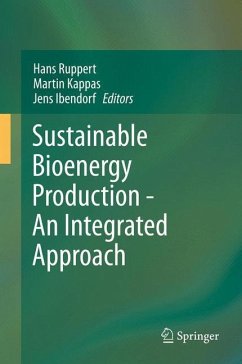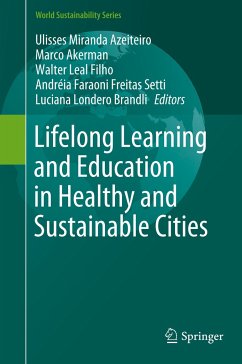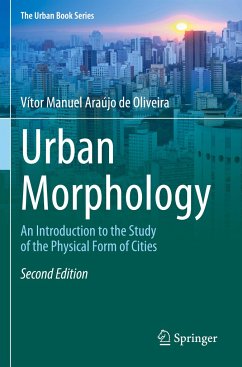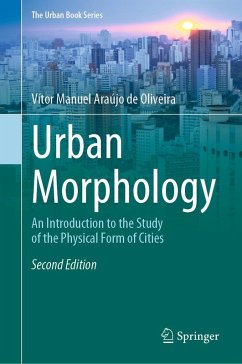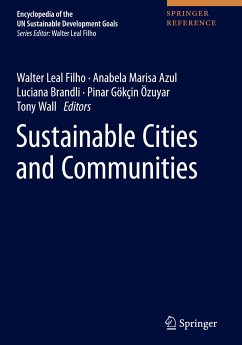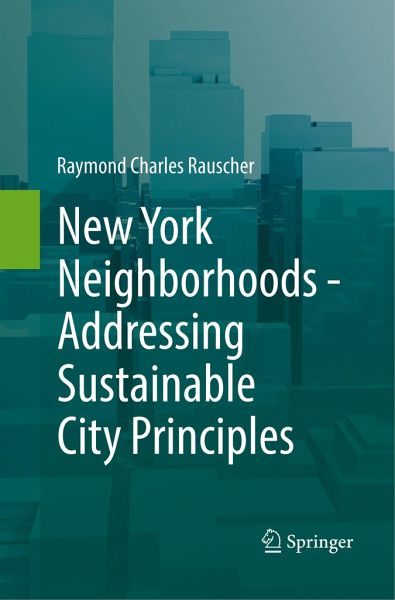
New York Neighborhoods - Addressing Sustainable City Principles
Versandkostenfrei!
Versandfertig in 6-10 Tagen
91,99 €
inkl. MwSt.
Weitere Ausgaben:

PAYBACK Punkte
46 °P sammeln!
This book examines the neighborhoods of New York City to determine to what extent planning in New York addresses Sustainable City Principles (SCPs). Part I looks at the background to planning urban areas in the face of global urban changes. These changes (i.e. population movements and densification of cities) are placing pressures on cities worldwide. Chapter 1 provides a background to these global pressures (i.e. population growth) and their implications. Chapter 2 looks closer at New York planning and introduces Sustainable City Principles (SCPs). Part II introduces nine selected neighborhoo...
This book examines the neighborhoods of New York City to determine to what extent planning in New York addresses Sustainable City Principles (SCPs). Part I looks at the background to planning urban areas in the face of global urban changes. These changes (i.e. population movements and densification of cities) are placing pressures on cities worldwide. Chapter 1 provides a background to these global pressures (i.e. population growth) and their implications. Chapter 2 looks closer at New York planning and introduces Sustainable City Principles (SCPs). Part II introduces nine selected neighborhoods within Manhattan and examines to what extent planning of these neighborhoods addresses the SCPs. For each chapter a neighborhood background is provided and results of the author's field survey are reviewed. Part III examines the selected neighborhoods within Brooklyn to determine to what extent planning of those neighborhoods addresses the SCPs. Part IV examines the last three neighborhoods (in Queens) and addresses the SCPs. Part V examines conclusions reached from examining the nine neighborhoods. These conclusions are used to determine the extent that the City Council (and the community) are addressing SCPs in planning neighborhoods. Finally, lessons learned from these conclusions are assessed for their relevance to planning neighborhoods anywhere in the world.



